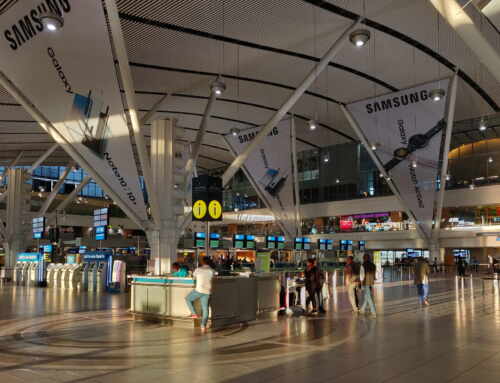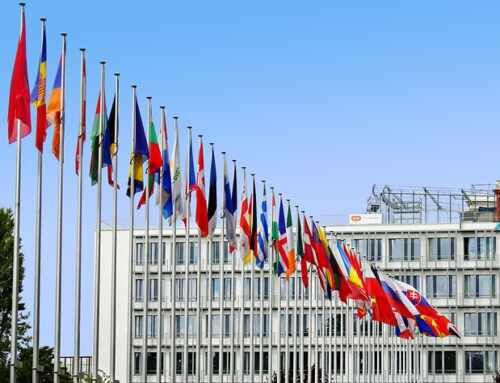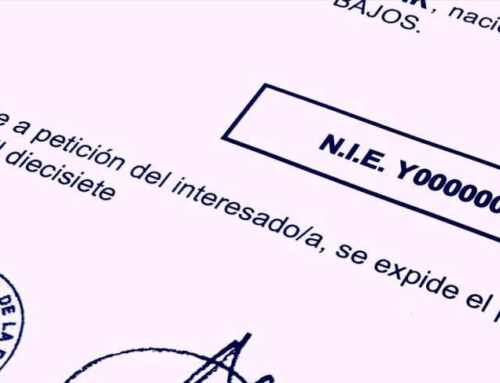Respect for and protection of family life are recognized as fundamental human rights in many international declarations such as the Universal Declaration of Human Rights (article 16), the European Convention on Human Rights (article 8), the European Social Charter (revised in 1996), the European Convention on the legal status of migrant workers (1977) and the EU Directive on the right to family reunification (2003/86 / EC).
It is a temporary residence authorization that may be granted to the relatives of foreigners residing in Spain, by virtue of the right to family reunification.
1. Basic Regulations
-Directive 2003/86/CE, of September 22, on the right to family reunification.
-Organic Law 4/2000, of January 11, on the rights and freedoms of foreigners in Spain and their social integration (articles 16 to 19).
-Regulation of Organic Law 4/2000, approved by Royal Decree 557/2011, of April 20 (articles 52 to 58).
-ROYAL DECREE 629/2022, of July 26, which modifies the Regulation of Organic Law 4/2000, on the rights and freedoms of foreigners in Spain and their social integration, after its reform by Organic Law 2/2009, approved by Royal Decree 557/2011, of April 20.
-Instructions DGM 4/2020 on the easing of the requirement of sufficient means in the processing of residence permits for family reunification.
2. Requirements
- Not be a citizen of a State of the European Union, the EEA or Switzerland, or a family member of citizens of these countries to whom the Union citizen regime applies.
- Not be found irregularly in Spanish territory.Lack of criminal records in Spain and in their previous countries of residence, in the last five years, for existing crimes in the Spanish legal system.
- Not being prohibited from entering Spain and not appearing as rejectable.
- Have health care because it is covered by Social Security or have private health insurance.
- Not suffer from any of the diseases that may have serious public health repercussions in accordance with the provisions of the International Health Regulations of 2005.
- Not being, where appropriate, within the commitment period of non-return to Spain that the foreigner has assumed when taking advantage of a voluntary return program.
- Have paid the fee for processing the procedure.
- Sufficient financial means to meet the needs of the family. The income contributed by the spouse or partner or another relative in the direct line and first degree, resident in Spain who lives with the sponsor may be computed.
-The income from the social assistance system will not be computable.
-The minimum amounts are as follows: family units of two members (regrouping and regrouping) monthly 150% of the IPREM. For each additional member, 50% of the IPREM must be added.
-This amount may be reduced in the case of minors and represented, considering it sufficient, even if the previous amount is not reached, when there is a stable source of income equal to or greater than the SMI. If a family unit is made up of two members, one being a minor, the amount that will be required will be 110% of the guaranteed amount of the Minimum Vital Income on an annual basis, and for each additional minor age, an additional 10% will be required, with the maximum cap of 150%.
- Have adequate housing.
- The sponsor must have resided in Spain for at least one year on a regular basis and have obtained authorization to reside for at least another year (this requirement will not be applicable to foreigners residing in Spain based on their previous long-term resident status). duration-EU in another EU member state, holders of a Blue-EU Card or beneficiaries of the special regime for researchers). To regroup the ascendants, the sponsor must be the holder of a long-term or long-term-EU authorization.
3. People eligible
The regrouped family member may be:
- Spouse or person with whom the sponsor maintains an emotional relationship similar to that of a spouse. More than one spouse can never be regrouped or The situations of marriage and of a similar affective relationship are incompatible. In the event of being married for the second or subsequent time, the dissolution and the situation of the previous spouse or partner and their relatives in terms of the common home, the spouse’s or partner’s pension and the children must be accredited.
It is considered analogous to the marital relationship:
When it is registered in a public registry and the registration has not been cancelled, or
When by any means of evidence admitted by law, the validity of an unregistered relationship is proven, established prior to the start of the sponsor’s residence in Spain.
- Children of the sponsor and the spouse or partner, including those adopted (as long as the adoption produces effects in Spain), under 18 years of age or disabled who are not objectively capable of providing for their own needs due to their state of If they are the child of one of the spouses or members of the couple, the latter must exercise parental authority alone or must have been granted custody and be effectively in charge.
Legally represented by the sponsor, under 18 years of age or who have a disability and are not objectively capable of providing for their own needs due to their state of health. The legal act from which the representative powers arise may not be contrary to the principles of the Spanish legal system. - First-degree ascendant of the long-term or long-term EU-resident sponsor, or of their spouse or partner, when they are in charge, are over 65 years of age and there are reasons that justify the need to authorize residence in Spain. They are considered to be in charge when it is proven that during the last year the sponsor has transferred funds or borne expenses of their ascendant of at least 51% of the gross domestic product per capita, in annual calculation, of the latter’s country of residence. Information on the Gross Domestic Product per capita by country.
Exceptionally, when there are humanitarian reasons, the ascendant under 65 years of age may be regrouped. Humanitarian reasons are considered, among other cases, when the ascendant lives with the sponsor in the country of origin, or when he is incapable and is under the guardianship of the sponsor or his spouse or partner, or when he is unable to provide for his own needs. There are also humanitarian reasons if the applications of the ascendant spouses are submitted jointly and one of them is over sixty-five years of age.
4. Required documentation
- Official model application form (EX-02) in duplicate, duly completed and signed by the sponsor.
- Copy of the complete passport, travel title or valid registration document of the sponsor.
- Copy of the documentation proving that you have employment and/or sufficient financial resources to meet the needs of the family.
In case of not carrying out any lucrative activity in Spain: certified checks, traveler’s checks or letters of payment or credit cards, accompanied by a bank certification of the amount available as credit of said card or bank certification. - Documentation accrediting having adequate housing.
To do this, you must attach a report issued by the competent body of the Autonomous Community of the sponsor’s place of residence. The report may be issued by the Local Corporation when so established by the Autonomous Community.
This requirement may be justified by any means of proof admitted by law in the event that the Autonomous Community or the local Corporation has not issued and notified the report within thirty days from the date of the request. In this case, the documentation provided must refer to: title that authorizes the occupation of the dwelling, number of rooms, use to which each of the dependencies is intended, number of people who inhabit it and conditions of habitability and equipment. A copy of the proof of having made the request for a report to the Autonomous Community or Corporation must also be provided.
Title that enables the occupation of the house. - Copy of the complete and valid passport or the travel title of the regrouped person.
- Copy of the documentation proving the family or kinship ties or existence of the de facto union or representation, and also:
In the event of regrouping the spouse or partner:
Affidavit of the sponsor not residing with him in Spain another spouse or partner.
If he is remarried or remarried, a judicial resolution establishing the situation of the previous spouse and his children.
In the case of children:
If they are regrouped by a single parent: documentation proving that they exercise parental authority alone, have been granted custody, or that the other parent authorizes their residence in Spain.
If they are over eighteen years of age and are not objectively capable of providing for their own needs, supporting documentation.
If they are adopted children, resolution by which the adoption was agreed. - In the event of being represented by the sponsor:
If they are over eighteen years of age and are not objectively capable of providing for their own needs, supporting documentation.
In the event of regrouping ancestors:
Documentation proving that the sponsor during the last year of residence in Spain has transferred funds or borne expenses of the ascendant.
Documentation accrediting the reasons that justify the need to authorize residence in Spain (For information purposes, it may be submitted, among other documents, that which proves the family, social, economic, patrimonial situation and/or the state of health of the ascendant to regroup in their country of origin).
If applicable, documentation proving that there are humanitarian reasons justifying the authorization.
Documentation accrediting having guaranteed health care.
5. Procedure
- Subject entitled to submit the application: the sponsor, personally or through the representative.
- Place of presentation: Immigration Office of the province in which the applicant resides. You can also submit the application electronically through the Mercurio platform. Remember that to carry out procedures through the Mercurio platform it is essential to have an electronic certificate.
- Temporary residence fee for family reunification: it will accrue at the time the application is accepted for processing, and must be paid within ten business days, they are:
Form 790: code 052, Section 2.1 Initial authorization of temporary residence - Term for resolution of the request: forty-five days counted from the day following the date on which it was entered in the registry of the competent body to process them. Once said period has elapsed without the Administration having made the notification, it may be understood that the application has been rejected due to administrative silence. (When it has not been possible to notify the resolution, it will be announced on the Single Edictal Board (TEU) . If electronic notification had been chosen or, by law, it was obliged to use that means, the resolution will be notified by publication in the electronic headquarters. If it is not accedes to the resolution in 10 business days from its publication, it will be considered notified).
- In the case of concession, the regrouped family member has two months from the notification of the concession, to personally request the visa at the diplomatic mission or consular office in whose demarcation they reside (in the case of minors, their representative must submit the visa application duly accredited). The visa application must be accompanied by:
- Ordinary passport or travel title recognized as valid in Spain with a minimum validity of four months.
Adults of criminal age: criminal record certificate issued by the authorities of the country of origin or of the country or countries in which they have resided during the last five years.
Medical certificate.
Original documentation accrediting family ties and, where appropriate, legal dependency.
- Ordinary passport or travel title recognized as valid in Spain with a minimum validity of four months.
- The diplomatic mission or consular office will notify the granting, where appropriate, of the visa within a maximum period of two months.
- Once the visa is granted, if applicable, the regrouped person must pick it up in person within two months from the date of notification (in the case of minors, it may be picked up by their representative).
Once the visa has been collected, the regrouped person must enter Spanish territory within the validity period of the visa, which will not exceed three months. - The regrouped person, within a month from their entry into Spain, must personally request (in the case of minors, the representative, accompanied by the minor) the Foreigner Identity Card at the Immigration Office or Police Station of the province where the authorization has been processed.
- The regrouped person and, if applicable, his representative, will show his passport or travel document at the time of fingerprint processing to prove his identity and will provide:
Foreigner’s identity card application, in official model (EX-17)
Proof of payment of the card fee.
A recent color photograph, on a white background, passport size.
In the event that the regrouped person is a minor, documentation proving the representation. - The residence authorization for family reunification held by the spouse, partner and children of working age: entitles you to work as an employee or self-employed anywhere in the national territory in any occupation and sector of activity without the need for any administrative procedure.
- The validity of the authorization of the regroupee will be extended until the same date as the authorization held by the sponsor at the time of entry of the family member in Spain.






